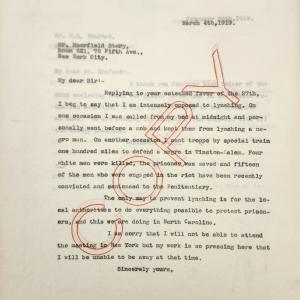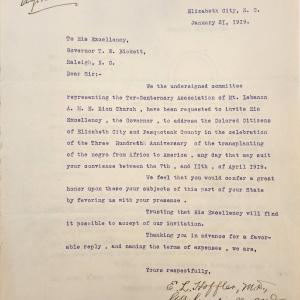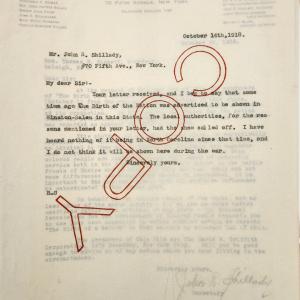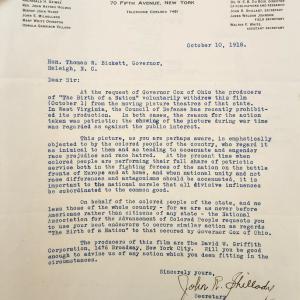- Transcription
State of North Carolina
Department of Attorney-General
Raleigh
July 23, 1920.
HIS EXCELLENCY,
Governor T. W. Bickett,
Raleigh, N.C.
Dear Sir:-
Referring to our conversation this morning in relation to the military laws of the State. The General Assembly of 1917 Chapter 200, Public Laws, revised the military laws of the State and in sections 55 to 65 inclusive, sets out fully the systems of court martial for the National Guards. Section 45 reads as follows:
"Whenever any portion of the militia shall be called into service to execute the law, suppress riot or insurrection, or to repel invasion, the articles of war, and articles for the government of the Navy, governing the Army and Navy of the United States, and the regulations prescribed for the Army and Navy of the United States, and the regulations issued thereunder, shall be enforced and regarded as a part of this act until said forces shall be duly relieved from such duty. As to offenses committed when such articles of war and articles for the government of the Navy are so in force, courts-martial shall possess, in addition to the jurisdiction and power of sentence and punishment herein vested in them, all additional jurisdiction and power of sentence and punishment exercisable by like courts under such articles of war and articles for the government of the Navy or regulations or laws governing the United States Army and Navy or the customs and usages thereof; but no punishment under such rules and articles which will extend to the taking of life shall in any case be inflicted except in time of war, invasion or insurrection, declared by a proclamation of the Governor to exist, and then only after approval by the Governor of the sentence inflicting such punishment. Imprisonment other than in guardhouse shall be executed in county jails or other prisons designated by the Governor for that purpose."
The articles of war and the articles for the government of the Army and the regulations prescribed for the Army, not only provide for the trial of offenses against articles, but also for courts of inquiry where an officer having an independent command is charged with having transcended his authority or duty in the premises. If, however, the offense charged amounts to a crime against the laws of the State where the command is located, none of the articles of war or regulations made in pursuance thereof, canoust the jurisdiction of the State courts. Coleman vs. Tenn. 97 U.S., 509; Grafton vs. U.S., 206 U.S., 333; Franklin vs. U.S., 216 U.S. 559.
It will be observed that the statute, in dealing with the National Guards, does not specifically provide for a Court of Inquiry as distinguished from a court martial. We construe, however, section 46 quoted above as being broad enough to incorporate a court of inquiry such as that provided for the Naval Militia in section 85. It is not necessary to resort to this construction for the articles of war, Section 2388 U.S. Compiled Statutes 1918 p. 315 et seq. in articles 97 to 103 inclusive provide for these courts for the Army also. They are instituted only upon the request of the officer or soldier whose conduct is to be inquired into. They are composed of three or more officers and the procedure in these courts is set out fully in the articles above cited.
Very truly yours,
Frank Nash
Assistant Attorney General.
N/H.






